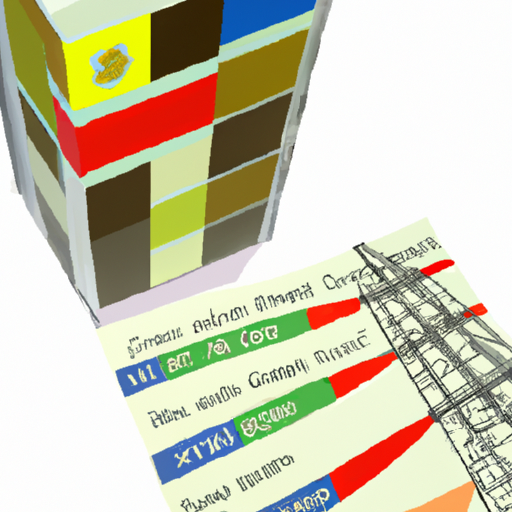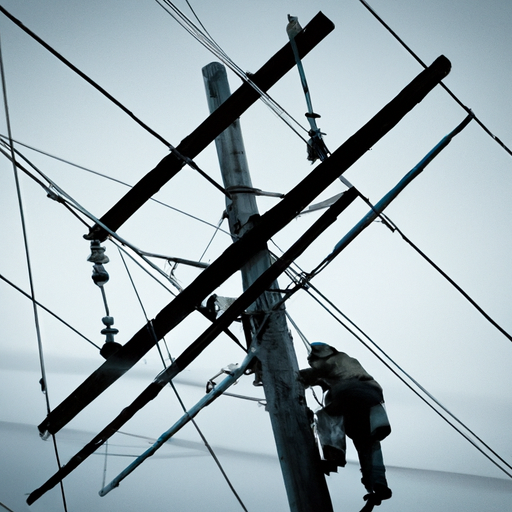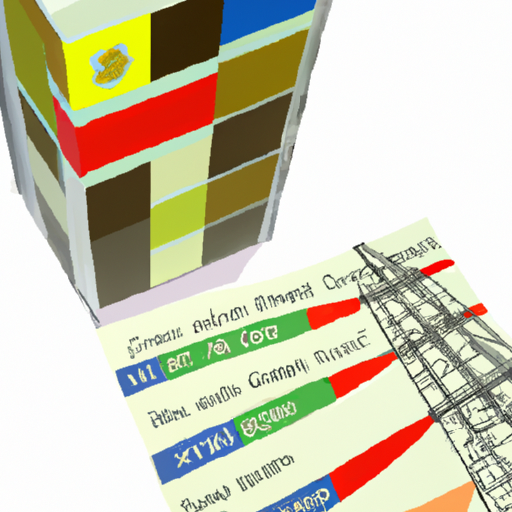So you’re curious about what it takes to be a lineman, huh? Well, get ready to dive into the world of these unsung heroes of the electrical industry. In this article, we’ll be exploring the duties and responsibilities of a lineman, shedding light on the vital work they do to keep our lights on and our cities powered.
But hold on, we’re just getting started! There’s so much more to learn about the life of a lineman. From the skills they need to the challenges they face, we’ll delve deep into the world of linework and uncover the inner workings of this demanding yet rewarding occupation. So buckle up and get ready to gain a newfound appreciation for the incredible work that linemen do every day.
Understanding the Role of a Lineman
Defining the Lineman’s Role
As you explore the world of electrical infrastructure, you may come across the term “lineman.” But what exactly does a lineman do? Well, a lineman is a skilled professional who is responsible for installing, maintaining, and repairing electrical power lines. They play a crucial role in ensuring the safe and reliable delivery of electricity to households, businesses, and industries.
Typical Duties of a Lineman
A lineman’s job entails a range of duties and responsibilities. One of the primary responsibilities of a lineman is to install and maintain power lines. This involves climbing utility poles, setting up power lines, and connecting transformers and distribution equipment. Additionally, linemen are responsible for repairing any faults in the power lines, such as damaged wires or malfunctioning equipment.
Another crucial aspect of a lineman’s job is performing routine inspections to identify potential issues or hazards. By conducting regular inspections, linemen can proactively address any problems and prevent electrical outages or accidents.
Responsibilities of a Lineman
A lineman has several important responsibilities to ensure the smooth functioning of the electrical infrastructure. One of their key responsibilities is to adhere to safety measures and regulations. Linemen work with high-voltage electricity, and it is vital for them to prioritize safety at all times. They must follow electrical codes and standards to minimize the risk of accidents and injuries.
Another responsibility of a lineman is to respond to power outages and electrical emergencies promptly. When there is an outage or emergency situation, linemen are called upon to troubleshoot and restore power. They work diligently, often under challenging conditions, to identify and resolve electrical problems in a timely manner.
Qualifications and Training
Educational Requirements
Becoming a lineman requires a certain level of education. Most employers prefer candidates with a high school diploma or a General Education Development (GED) certificate. A strong background in math and science can be beneficial in understanding the technical aspects of the job.
Specialized Training Programs
In addition to formal education, linemen typically undergo specialized training programs. These programs provide hands-on experience and equip linemen with the skills and knowledge required for the job. Training programs often cover topics such as climbing utility poles, operating power line equipment, and working safely with electricity.
Certifications and Licenses
To further enhance their professional standing, linemen can pursue certifications and licenses. Various organizations, such as the National Joint Apprenticeship and Training Committee (NJATC) and the Electrical Training Alliance (ETA), offer certification programs for linemen. These certifications validate their skills and knowledge and may increase job prospects and earning potential.

Working Environment
Outdoor Work
As a lineman, you can expect to work predominantly outdoors. Work assignments may take you to remote locations, construction sites, or even urban areas. Linemen often work in teams and spend long hours outside, regardless of weather conditions.
Challenging Weather Conditions
One of the challenges linemen face is working in different weather conditions. Rain, snow, extreme heat, or strong winds are just some of the adverse weather conditions that linemen must tolerate. Despite these challenges, linemen must continue their work to ensure the uninterrupted supply of electricity.
Working at Heights
Another aspect of a lineman’s job is working at heights. Whether it’s climbing utility poles or using aerial lifts, linemen must be comfortable working at elevated locations. This requires physical strength, agility, and a keen sense of balance to ensure personal safety while performing their tasks.
Essential Skills and Abilities
Physical Strength and Endurance
The work of a lineman demands physical strength and endurance. Climbing poles, carrying heavy equipment, and maneuvering in challenging terrains require a good level of physical fitness. Regular exercise and strength training can help linemen build the stamina necessary for their demanding job.
Technical Knowledge
To excel as a lineman, you must have technical knowledge relating to electrical systems and equipment. This includes understanding power distribution networks, transformers, circuit breakers, and various types of wires and cables. Linemen must stay updated with the latest technological advancements in the field to perform their duties efficiently.
Problem-Solving Skills
Problem-solving skills are essential for a lineman, as they often encounter unexpected situations while working on power lines. Linemen must have the ability to analyze complex electrical issues, troubleshoot problems, and come up with effective solutions. A keen eye for detail and critical thinking skills can greatly enhance a lineman’s problem-solving abilities.

Safety Measures and Regulations
Importance of Safety in a Lineman’s Work
Safety is of paramount importance in a lineman’s work. Working with high-voltage electricity poses inherent risks, and linemen must adhere to strict safety protocols to minimize accidents and injuries. They must perform their duties in a way that ensures the safety of themselves and those around them.
Personal Protective Equipment (PPE)
To ensure their safety, linemen are required to wear personal protective equipment (PPE) while working. This includes items such as hard hats, safety glasses, flame-resistant clothing, insulated gloves, and steel-toed boots. PPE provides linemen with necessary protection against electrical hazards, falls, and other potential risks.
Understanding Electrical Codes and Standards
To maintain safety and quality standards, linemen must have a comprehensive understanding of electrical codes and regulations. These codes outline the best practices for installing and maintaining power lines, ensuring that work is done safely and efficiently. Linemen must stay updated with any changes or revisions in the codes to comply with the latest safety requirements.
Teamwork and Collaboration
Working with Other Linemen
Linemen often work in crews or teams, collaborating with their colleagues to complete projects efficiently and effectively. Teamwork is vital in the lineman field, as linemen need to communicate and coordinate with each other to ensure seamless operations. They rely on one another’s expertise and support to tackle the challenges they face in the field.
Coordinating with Other Departments
Linemen also interact with other departments within an organization, such as engineering and maintenance teams. Effective communication and coordination are essential to ensure that power lines are installed and maintained according to the organization’s requirements. Collaboration with other departments ensures the smooth functioning of the overall electrical infrastructure.
Communication Skills
Effective communication skills are critical for linemen, as their work often involves interacting with customers, colleagues, and supervisors. Clear and concise communication is necessary to convey instructions, report issues, and provide updates on tasks. Linemen must also have active listening skills to understand instructions and requirements accurately.
Maintenance and Repair Duties
Inspecting and Maintaining Power Lines
Regular inspections and maintenance are crucial to ensure the reliability of power lines. Linemen are responsible for inspecting power lines and identifying any signs of wear, damage, or potential hazards. By conducting routine maintenance, linemen can address these issues promptly and prevent any major problems that could disrupt the electrical supply.
Identifying and Resolving Electrical Issues
When electrical issues arise, linemen are called upon to troubleshoot and diagnose the problems. By utilizing their technical knowledge and problem-solving skills, linemen can identify the root cause of electrical issues and implement appropriate solutions. This may involve repairing or replacing faulty components, conducting tests, or adjusting electrical settings.
Repairing and Replacing Faulty Equipment
In the course of their work, linemen often encounter faulty equipment that needs repair or replacement. This can include transformers, insulators, or other critical components of the electrical infrastructure. Linemen must have the skills to handle these repairs effectively to restore the proper functioning of the power system.
Emergency Response and Troubleshooting
Responding to Power Outages and Electrical Emergencies
Power outages and electrical emergencies can occur unexpectedly, and when they do, linemen are at the forefront of responding to these situations. Linemen must be prepared to work swiftly under pressure to restore power as quickly as possible. They follow established emergency protocols and use their expertise to troubleshoot and fix electrical faults.
Analyzing and Resolving Electrical Troubles
Troubleshooting electrical issues requires linemen to analyze complex problems systematically. They use their technical knowledge and problem-solving skills to identify the underlying causes of electrical troubles. This may involve using specialized tools and equipment to test circuits, isolate faults, and determine the most appropriate course of action for resolving the issues.
Ensuring Public Safety in Emergency Situations
During power outages or electrical emergencies, linemen must also consider the safety of the general public. They take precautionary measures to control and restrict access to hazardous areas and clearly communicate any potential risks to the public. Linemen may also provide guidance and support to customers during emergency situations.
Career Progression and Opportunities
Advancement in the Lineman Field
The lineman field offers various opportunities for career growth and advancement. As linemen gain experience and develop their skills, they can move up the ranks to become crew leaders, supervisors, or managers. These leadership roles come with additional responsibilities and higher salaries.
Specializations within the Industry
Linemen can also choose to specialize in specific areas within the electrical industry. For example, they can focus on working with transmission lines, distribution lines, or underground cables. Specializing in a particular aspect of the lineman field can open up new career opportunities and allow linemen to work on specialized projects.
Further Education and Training Options
Linemen who wish to expand their knowledge and skills can pursue further education and training. This can include enrolling in advanced electrical courses or participating in seminars and workshops. Continuing education helps linemen stay updated with the latest industry trends and advancements, enhancing their professional growth and employability.
Conclusion
In conclusion, a lineman’s duties and responsibilities are vital in ensuring the efficient delivery of electricity to homes, businesses, and industries. From installing and maintaining power lines to responding to emergencies and troubleshooting electrical issues, linemen play a crucial role in maintaining a reliable electrical infrastructure. With the necessary qualifications, training, and skills, linemen work tirelessly to ensure public safety, promote teamwork, and adhere to strict safety measures. The lineman field offers numerous opportunities for career progression and specialization, making it an exciting and rewarding industry to be a part of.




